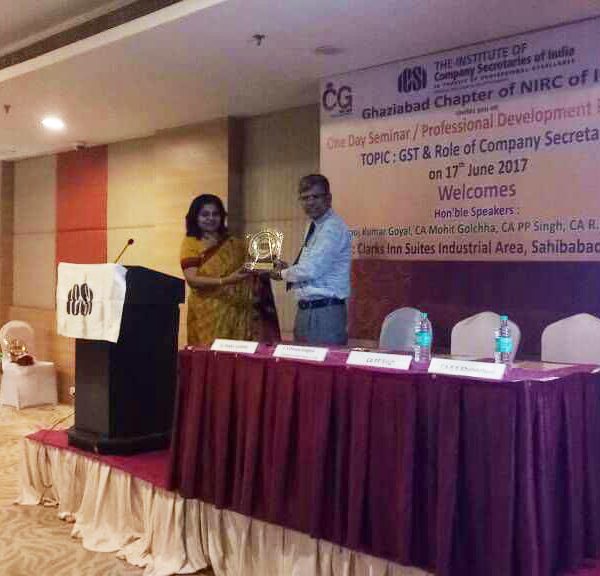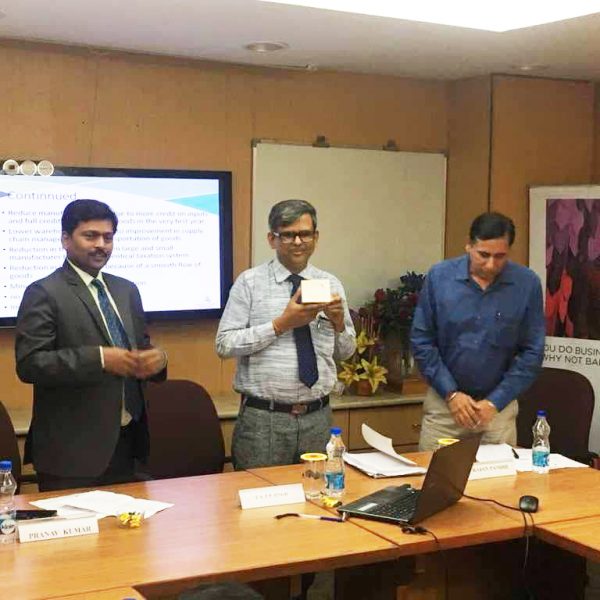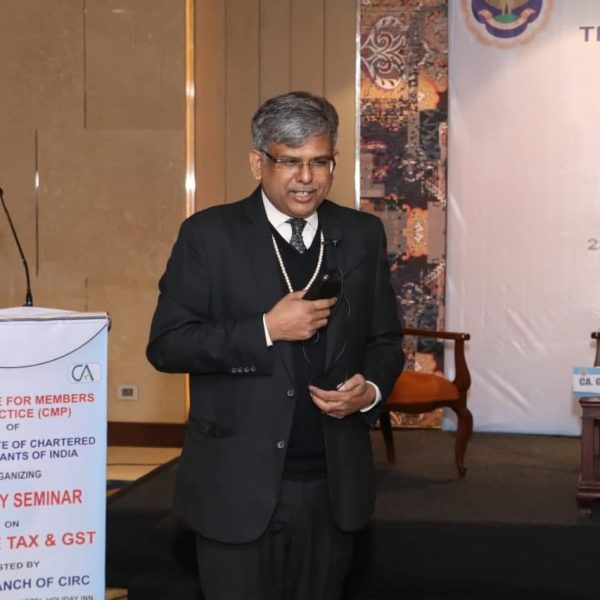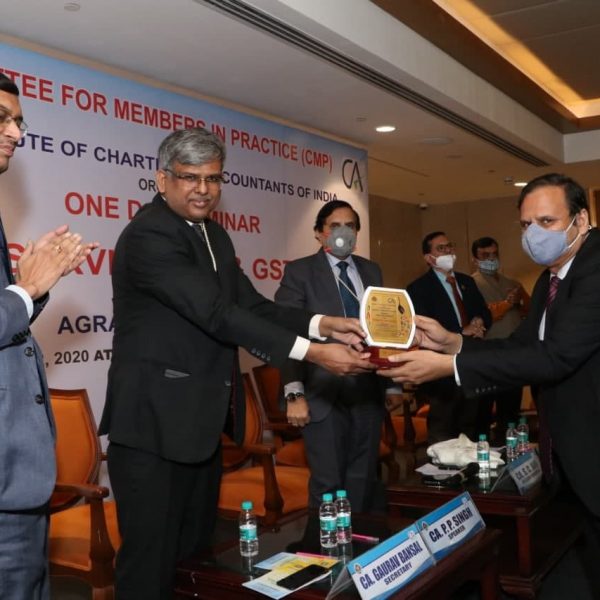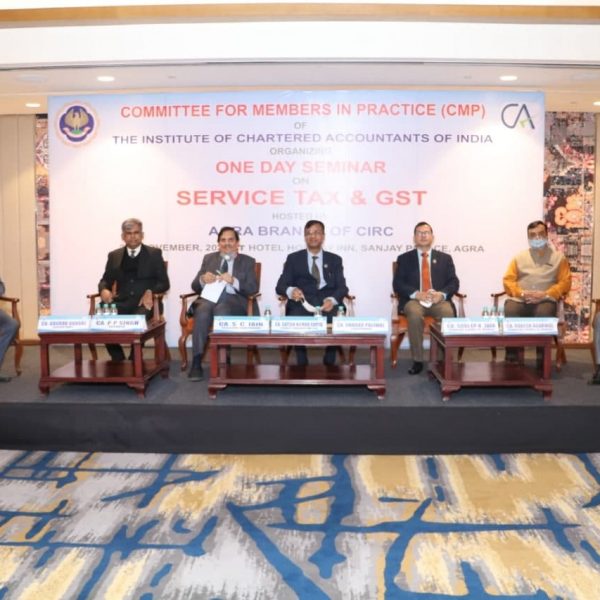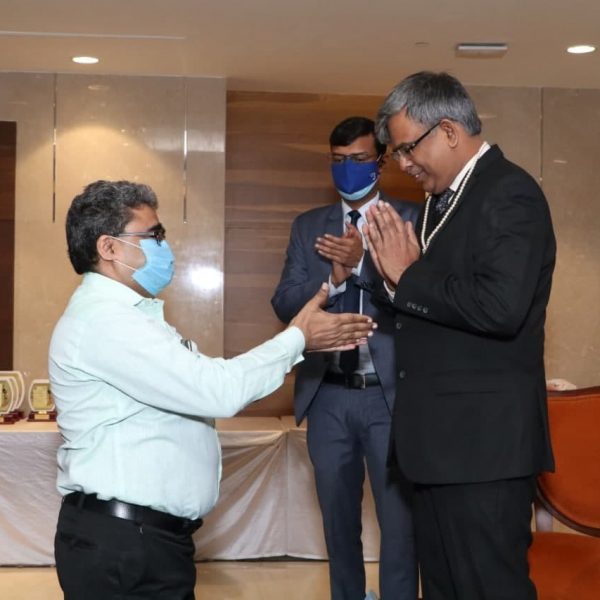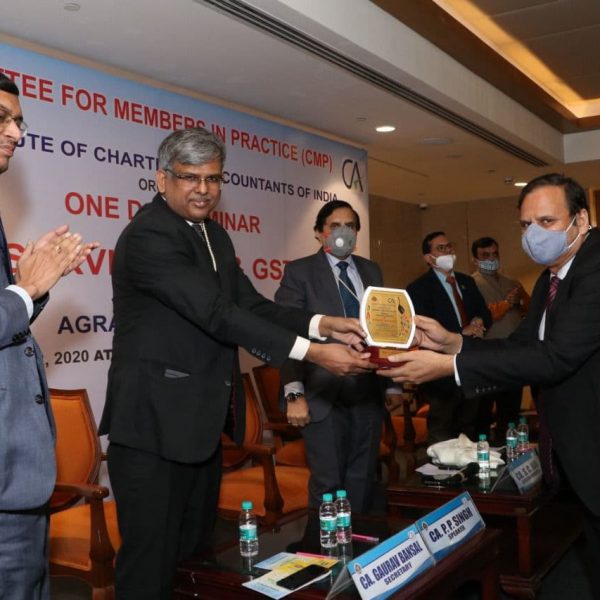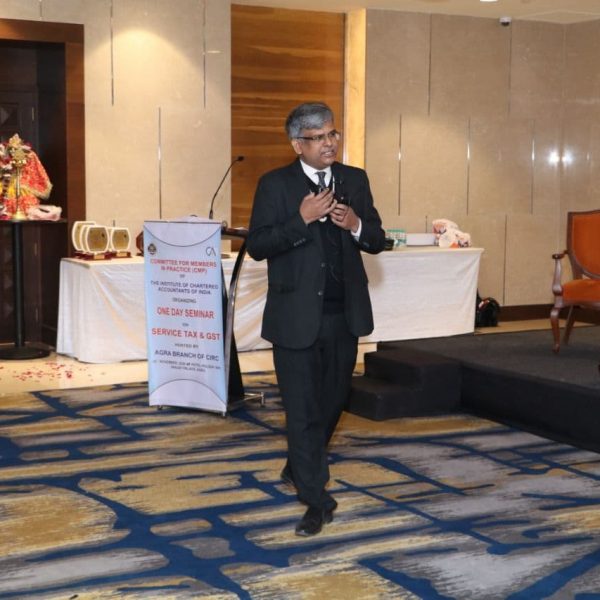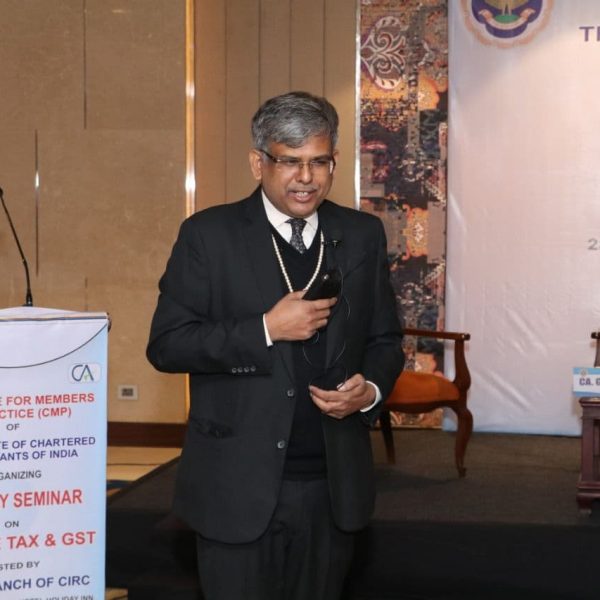Meaning of charity and conditions for claiming exemption of its various types of income under income tax law.
Meaning of charitable purpose- section 2(15)
Charitable purpose” includes relief of the poor, education, yoga, medical relief, preservation of environment (including watersheds, forests and wildlife) and preservation of monuments or places or objects of artistic or historic interest, and the advancement of any other object of general public utility:
Provided that the advancement of any other object of general public utility shall not be a charitable purpose, if it involves the carrying on of any activity in the nature of trade, commerce or business, or any activity of rendering any service in relation to any trade, commerce or business, for a cess or fee or any other consideration, irrespective of the nature of use or application, or retention, of the income from such activity, unless—
(i) such activity is undertaken in the course of actual carrying out of such advancement of any other object of general public utility; and
(ii) the aggregate receipts from such activity or activities during the previous year, do not exceed 20% of the total receipts, of the trust or institution undertaking such activity or activities, of that previous year;
From the above it is clear that broadly 7 classes of charitable activities such as
- Relief of the poor
- Education
- Yoga
- Medical relief
- Preservation of environment. Not defined under the income tax law but defined in Environment Protection Act 1986 comprehensively under section 2 (a) as environment” includes water, air and land and the inter- relationship which exists among and between water, air and land, and human beings, other living creatures, plants, micro-organism and property;
- preservation of monuments
- Advancement of any other object of general public utility.
Note: in the category of Advancement of general public utility receipts after certain limit the receipts become non charitable so this category is conditional one.
Note: definition of charitable activity is inclusive definition and not exhaustive one so similar activity even though not expressly mentioned in the definition is also charitable activity.
It is important to note that definition of charitable activity in GST is not the same as in income tax , definition as per GST is also mentioned here:
(r) “charitable activities*” means activities relating to—
(i) public health by way of ,—
(A) care or counselling of
(I) terminally ill persons or persons with severe physical or mental disability;
(II) persons afflicted with HIV or AIDS;
(III) persons addicted to a dependence-forming substance such as narcotics drugs or alcohol; or
(B) public awareness of preventive health, family planning or prevention of HIV infection;
(ii) advancement of religion, spirituality or yoga;
(iii) advancement of educational programmes or skill development relating to,—
(A) abandoned, orphaned or homeless children;
(B) physically or mentally abused and traumatized persons;
(C) prisoners; or
(D) persons over the age of 65 years residing in a rural area;
(iv) Preservation of environment including watershed, forests and wildlife;
* Note: For detail refer to notification no 12/2017-CENTRAL TAX (RATE).
So from above it is clear that public awareness is also charitable activity although not specifically mentioned in the definition u/s 2(15) of the income tax Act.
Important recent landmark judgment determining certain activities as charitable/non chairitable activities:
Capitation fee for admission of students, trust was not entitled for registration under section 12AA as it was not running charitable activities- Karnataka Chamber of Commerce and Industry Vs. Commissioner of Income Tax, Hubli [2021] 126 taxmann.com 21 (SC) SC confirmed Kar HC.
“Assessee, a charitable trust, was running an educational institution – Pursuant to search operation in office of assessee, several documents were seized which disclosed receipt of capitation fee by assessee for admission of students – Treasurer and secretary of trust in their statements had also admitted that trust was collecting capitation fee for admission of students – Thus, Commissioner rejected application of assessee for grant of registration under section 12AA – Tribunal also upheld same on ground that trust was not running charitable activities – High Court by impugned order agreed with Commissioner and Tribunal and dismissed appeal of assessee – Whether there was no ground to interfere with impugned order of High Court and instant appeal filed against same was to be dismissed – Held, yes” [Paras 5 and 6]
Note: capitation fees” means any amount by whatever name called, whether in cash or in kind paid or collected or received directly or indirectly in addition to the fees determined
Where assessee-society engaged in running educational institutions, earned income from business of community hall, Kalyana Mandapam and Gnanavapi and utilized surplus income for objects of trust, i.e., running educational institutions and providing medical relief to poor, assessee was duly entitled to exemption under section 11. income derived from Kalyana Mandapam, Gnanavapi and Community Hall cannot be treated as business of the trust. The trust has not conducted any business. Whatever income earned from the Kalyana Mandapam, Gnanavapi and Community Hall, is utilised for the educational purpose and the society is running educational Institution, which is the primary object of the trust; on the other hand, running Kalyana Mandapam, Gnanavapi and Community Hall is not a primary object.[Sri Ram Samaj Vs. Joint Director of Income Tax (Exemptions) [2020] 119 taxmann.com 334 (Madras) ] HC
Where assessee-trust was established with a main object to consider all questions concerning relations between employers and employees in Southern India in order to protect their interests and lower authorities denied its claim of exemption under section 11, taking view that substantial sums of money were received by assessee from conducting conferences and seminars which were not incidental to its main objects, since lower authorities had not rendered any finding as to whether activity carried out by assessee was a commercial activity, benefit of exemption under section 11 could not have been denied to assessee.[Employers Federations of Southern India Vs. Commissioner of Income Tax (Exemptions)-III, Chennai [2020] 122 taxmann.com 87 (Madras) ] HC
Where assessee-company, registered under section 25 of Companies Act, was engaged in imparting ‘financial education/awareness’ to investor in field of investments, merely because assessee earned certain revenue, it could not be said that activities of assessee were not charitable so as to cancel its registration under section 12AA. Investor Financial Education Academy Vs. Income Tax Officer (Exemptions)-4, Chennai [2020] 121 taxmann.com 281 (Madras) HC.
Registration cannot be rejected on ground that financials have not been furnished: It is settled proposition of law that for the purpose of registration u/s 12AA of the Act, the threshold condition i.e. genuineness of the activities is to be decided with the object clause of institution. In other words, when the object of the institution, the appellant in this case, is proved to be charitable within the meaning of section 2(15) of the Act as has been held by Hon’ble Apex Court in the identical facts and circumstances in a case of Bar Council of Maharashtra (supra), further scrutiny of the financials of the appellant are not required because it is otherwise within the purview of AO to examine at the time of assessment if the appellant is entitled to exemption u/s 11 of the Act. Advocate Welfare Fund Trustee Committee Vs. Commissioner of Income-tax (Exemption), New Delhi. [2020] 117 taxmann.com 701 (Delhi – Trib.)
Advocate welfare fund trustee committee established under Bar Council of Delhi being engaged in safeguarding rights, privileges and interest of advocates, its dominant purpose is advancement of general public utility within meaning of section 2(15) . Held, yes Advocate Welfare Fund Trustee Committee Vs. Commissioner of Income-tax (Exemption), New Delhi. [2020] 117 taxmann.com 701 (Delhi – Trib.)
Where assessee-society had been constituted by Ministry of Textiles, Government of India to promote handloom sector by organizing exhibitions in different parts of country for display and sale of handloom fabrics/cloth manufactured by handloom weavers and handloom society and motive was to provide a platform for handloom weavers of country for marketing and displaying their products through exhibitions and activities were not for any private gain or profit and receipts were used for activities of society, assessee could not be said to be involved in carrying on any business, trade or commerce and it was eligible for benefit of section 11.[Income Tax Officer (E), Trust Word 1(1) Vs. Delhi Association of Corporation & Apex Societies of Handlooms. [2020] 119 taxmann.com 376 (Delhi – Trib.)
Where assessee trust was engaged in providing asylum/shelter to cows and maintaining gaushalas and famine relief centres to provide proper treatment and fodder to needy stray cows, merely because assessee earned certain revenue from sale of milk, milk product, cattle feed etc., it could not be said that activities of assessee were not charitable so as to cancel its registration under section 12A. Rajasthan Gau Seva Sangh Vs. Commissioner of Income-tax Exemption.
Certain income not form part of total income so no tax at all to NGO:
income derived from property held under trust-11(1)(a) : (a) To the extent applied charitable or religious purposes in India (b) Accumulation upto 15% of income (c ) Accumulation beyond 15% for certain purpose upto 5 years – if certain condition satisfied [section 11(2)]
- Income neither applied nor deemed applied as per explanation 1 but accumulated or set apart [Section 11(2)]
- Corpus donation [section -11(1)(d)] – the NGO must maintain identity and address of the donors and supporting documents of direction from the donor that such donation shall form part of corpus.
- Capital gain on transfer of capital assets- section 11(1A): (a) whole of the net consideration is utilised in acquiring the new capital asset- Fully exempt (b) part of the net consideration is utilised in acquiring the new capital asset- proportionately exempt.
- Business income of undertaking /incidental /ancillary- 11(4)/(4A).
Explanation to section 11(1):
Explanation 1: (a) While computing 15% accumulation voluntary contributions referred to in section 12 shall be deemed to be part of the income; (b) Deemed application-if actual application short of 85% due to (i) income has not been received during that year (ii) Due any other reason.
Conditions for exemptions:
In case (i) above if Income applied during the PY in which received or immediately following FY – filing of Form 9A before due date of return filing.
In case (ii) above Income applied during immediately following PY – Form 9A before due date of return filing.
Note: corpus donation is excluded for computing the limit of 85% limit etc.
|
EXTRACT OF EXPLANATION -1 TO SECTION 11(1): For the purposes of clauses (a) and (b),— (1) in computing the 15% of the income which may be accumulated or set apart, any such voluntary contributions as are referred to in section 12 shall be deemed to be part of the income; (2) if, in the previous year, the income applied to charitable or religious purposes in India falls short of 85% of the income derived during that year from property held under trust, or, as the case may be, held under trust in part, by any amount— (i) for the reason that the whole or any part of the income has not been received during that year, or (ii) for any other reason, then— (a) in the case referred to in sub-clause (i), so much of the income applied to such purposes in India during the previous year in which the income is received or during the previous year immediately following as does not exceed the said amount, and (b) in the case referred to in sub-clause (ii), so much of the income applied to such purposes in India during the previous year immediately following the previous year in which the income was derived as does not exceed the said amount, may, at the option of the person in receipt of the income[(such option to be exercised before the expiry of the time allowed under section 139(1) for furnishing the return of income, in such form and manner as may be prescribed( Form 9A) be deemed to be income applied to such purposes during the previous year in which the income was derived; and the income so deemed to have been applied shall not be taken into account in calculating the amount of income applied to such purposes, in the case (i), during the previous year in which the income is received or during the previous year immediately following, as the case may be, and, in the case (ii), during the previous year immediately following the previous year in which the income was derived.]
|
Time period for exercising option: refer rule 17
Rule 17 (1) The option to be exercised in accordance with the provisions of the Explanation to sub-section (1) of section 11 in respect of income of any previous year relevant to the assessment year beginning on or after the 1st day of April, 2016 shall be in Form No. 9A and shall be furnished before the expiry of the time allowed under sub-section (1) of section 139 for furnishing the return of income of the relevant assessment year.
While filing form 9A:
- The details of income in this regard are:
| i | Amount of income derived from property held under trust / held under trust in part , during the above mentioned previous year: Rs…….; | Amount in ₹ |
| iiii | Amount of income [out of (i)] actually applied to charitable or religious purposes in India: Rs ………; | Amount in ₹ |
| Iiii | Amount of income referred to in (ii) that falls short of 85% of the income referred to in (i) : Rs…….; | Amount in ₹ |
| Iiv | The amount of income in respect of which the option is being exercised: Rs…… | Amount in ₹ |
| Vv | Balance offered for tax | Amount in ₹ |
Note:
Reasons for short fall must be specified as amount not received, any proceeding in court, amount accrued but not due, stay matter, pending in appeal, inability to spend due to approval is pending from approving authority, bank account attached etc.
Governing body resolution explaining reason and authorizing person to file 9A.
Such option to be exercised by Filing of form 9A before the expiry of the time allowed under section 139(1) for furnishing the return of income.
Ensure utilisation of accumulated fund within time limit.
Consequences if option exercised under explanation -1 but income not applied for charitable or religious purpose within time allowed.[ Section 11(1B)]
Where any income in respect of which an option is exercised under clause (2) of the Explanation to sub-section (1) is not applied to charitable or religious purposes in India during the period referred to in sub- clause (a) or, as the case may be, sub-clause (b), of the said clause, then, such income shall be deemed to be the income of the person in receipt thereof—
(a) in the case referred to in sub-clause (i) of the said clause, of the previous year immediately following the previous year in which the income was received; or
(b) in the case referred to in sub-clause (ii) of the said clause, of the previous year immediately following the previous year in which the income was derived.]
Explanation 2 related corpus donation to other NGO: If out of unutilised income corpus donation to other NGO, to that extent not treated as application of income for charitable or religious purpose. In other words corpus donation out of accumulated income not allowed, if done so to that extent amount shall be taxable.
|
Extract of explanation -2: Any amount credited or paid, out of income referred to in clause (a) or clause (b) read with Explanation 1, to any fund or trust or institution or any university or other educational institution or any hospital or other medical institution referred to in sub-clause (iv) or sub-clause (v) or sub-clause (vi) or sub-clause (via) of clause (23C) of section 10 or other trust or institution registered under section 12AA [or section 12AB, as the case may be , being contribution with a specific direction that it shall form part of the corpus], shall not be treated as application of income for charitable or religious purposes, as a result thereof tax on such payment to other NGO |
Explanation 3: Computation of application of income is subject to section 40A (3)/ (3A) cash payment during the same FY/ following FY and section 40(a)(ia) TDS provisions.
| Extract of explanation -3
For the purposes of determining the amount of application under clause (a) or clause (b), the provisions of sub-clause (ia) of clause (a) of section 40 and sub-sections (3) and (3A) of section 40A, shall, mutatis mutandis, apply as they apply in computing the income chargeable under the head “Profits and gains of business or profession”.
|
Income neither applied nor deemed to applied as per explanation 1 but accumulated or set apart for certain purposes upto 5 years [Section 11(2)]
Conditions for availing exemption in the case of accumulation referred above u/s 11)(2) read with rule 17:
- Statement in form 10 to be furnished to the Assessing Officer or the prescribed authority under sub-section (2) of section 11.
- stating the purpose for which the income is being accumulated or set apart and the period for which the income is to be accumulated or set apart, which shall in no case exceed 5 years ; period during which the income could not be applied due to an order or injunction of any court, shall be excluded
- The statement to be furnished before the expiry of the time allowed under sub-section (1) of section 139, for furnishing the return of income. Rule 17(2)
- The statement in Form No.10 referred to in sub-rule (2) shall be furnished electronically either under digital signature or electronic verification code.
- money so accumulated or set apart is invested or deposited in the forms or modes specified in section 11(5) read with rule 17C;
- Amount accumulated or set apart shall not be credited or paid to other NGO whether during accumulation period or thereafter, if so paid shall not be treated as application of income.
Consequence of non- compliances of condition of section 11(2) for set apart for future use.-Refer section 11(3):
Any income referred to in sub-section (2) which—
- is applied to purposes other than charitable or religious purposes as aforesaid or ceases to be accumulated or set apart for application thereto, or
- ceases to remain invested or deposited in any of the forms or modes specified in sub-section (5), or
- is not utilised for the purpose for which it is so accumulated or set apart during the period referred to in clause (a) of that sub-section or in the year immediately following the expiry thereof,
- is credited or paid to any trust or institution registered under section 12AA or to any fund or institution or trust or any university or other educational institution or any hospital or other medical institution referred to in sub-clause (iv) or sub-clause (v) or sub-clause (vi) or sub-clause (via) of clause (23C) of section 10,]
Shall be deemed to be the income of such person of the previous year in which it is so applied or ceases to be so accumulated or set apart or ceases to remain so invested or deposited or credited or paid or, as the case may be, of the previous year immediately following the expiry of the period aforesaid.
Income accumulated or set apart cant be applied for approved purpose due to circumstances beyond control .e. g covid 19 etc. ? Can be used for other charitable or religious purpose (except credit or payment to other registered or approved NGO, but such payment/credit allowed in the case of dissolution) with approval of AO [section 11(3)]
Utilisation for other charitable or religious purpose with approval of AO:
As per section 11 (3A) Notwithstanding anything contained in sub-section (3), where due to circumstances beyond the control of the person in receipt of the income, any income invested or deposited in accordance with the provisions of clause (b) of sub-section (2) cannot be applied for the purpose for which it was accumulated or set apart, the Assessing Officer may, on an application made to him in this behalf, allow such person to apply such income for such other charitable or religious purpose in India as is specified in the application by such person and as is in conformity with the objects of the trust; and thereupon the provisions of sub-section (3) shall apply as if the purpose specified by such person in the application under this sub-section were a purpose specified in the notice given to the Assessing Officer under clause (a) of sub-section (2).
Payment /credit to other NGO out of accumulated income shall not be allowed except dissolution: Provided that the Assessing Officer shall not allow application of such income by way of payment or credit made for the purposes referred to in section 11(3)(d).
Payment /credit to other NGO from accumulated or set apart income shall be allowed only in the case of dissolution Provided further that in case the trust or institution, which has invested or deposited its income in accordance with the provisions of clause (b) of sub-section (2), is dissolved, the Assessing Officer may allow application of such income for the purposes referred to in section 11(3)(d) in the year in which such trust or institution was dissolved..
Exemption to NGO running business undertaking –section 11(4)
- For the purposes of this section 11 “property held under trust” includes a business undertaking so held.
- A claim is made by NGO that the income of any such undertaking shall not be included in the total income of the persons in receipt thereof,
- but the Assessing Officer shall have power to determine the income of such undertaking in accordance with the provisions of this Act relating to assessment; and
- where any income so determined by AO is > income as shown in the accounts of the undertaking, such excess shall be deemed to be applied to purposes other than charitable or religious purposes. In other words excess so determined shall be included in the total income and become taxable.
- This is a case where income applied for charitable or religious purpose but still deemed as applied for non charitable/religious purpose if amount determined by AO is more than that determined by NGO.
Exemptions of business income of a trust –section 11(4A)
- Provisions of Sub-section (1) or sub-section (2) or sub-section (3) or sub-section (3A) of section 11 shall not apply in relation to any income of a trust or an institution, being profits and gains of business, unless the business is incidental to the attainment of the objectives of the trust or, as the case may be, institution, and separate books of account are maintained by such trust or institution in respect of such business.
- in other words generally exemptions provisions of Sub-section (1) or sub-section (2) or sub-section (3) or sub-section (3A) of section 11 shall not be applicable to business income (i. e business income shall be included in the total income and subject to tax) except where following conditions are satisfied:
- Business is incidental to the attainment of the objectives of the trust; and
- Separate books of account are maintained by such trust or institution in respect of such business.
Note: 85% or more utilization or application in dorm 9A/10 is of no use and would not be valid for exemption in this case.
Summary of deemed income & income forming part of total income for tax liability
| Section | Nature of income | Cases of deemed income/income forming part of total income | Treatment under income tax |
| 11(1) | Any income | 85% income not applied for charitable purpose and option under explanation 1 not exercised. | Taxable Income of the PY in which under utilised. |
| 11(1A) | Capital gain | If net consideration not utilised/partly utilised for acquisition of new capital assets. | Net consideration/ proportionate of non utilisation shall be income of the PY of transfer of capital assets. |
| 11(1B) | Any income | Option exercised under explanation 1 but not applied during the year of receipt of income or in the next FY | previous year immediately following the previous year in which the income was received/derived; |
| 11(3)(a) | Any income | Income applied to purposes other than charitable or religious purposes or ceases to be accumulated or set apart for application | Deemed income of the previous year in which it is so applied or ceases to be so accumulated or set apart |
| 11(3)(b) | Any income | ceases to remain invested or deposited in any of the forms or modes specified in section 11(5), | Deemed income of the previous year in which ceases to remain so invested or deposited |
| 11(3)(c) | Any income | not utilised for the purpose for which it is so accumulated or set apart during the period sought or in the year immediately following the expiry thereof, | Deemed income of the previous year immediately following the expiry of the period aforesaid. |
| 11(3)(d) | Any income | credited or paid to any trust or institution registered u/s 12A or approved educational institution or any hospital or other medical institution u/s 10(23C)(iv)/(v)(vi)(via) except the case of dissolution of trust or institution accumulating or set apart. | Deemed income of the previous year in which credited or paid to other trust or institution. |
| 11(4) | Income of undertaking | If income assessed by AO > income shown in the accounts of undertaking | Excess shall be deemed to be applied to purposes other than charitable or religious purposes |
| 11(4A) | Business income – | Business is not incidental/ancillary of the object of trust or separate books of account not maintained. | No exemption u/s 11 and income shall be taxable income. |
Can NGO claim depreciation ? Optional if cost of capital not claimed as application of income- section 11(6)
- Amendment by the Finance (No. 2) Act, 2014, w . e. f. 1-4-2015.
- where any income is required to be applied or accumulated or set apart for application, then, for such purposes the income shall be determined without any deduction or allowance by way of depreciation or otherwise in respect of any asset, acquisition of which has been claimed as an application of income under this section in the same or any other previous year.
- Depreciation may be allowed if cost of capital assets not claimed as application in any of the PY.
Whether approval & exemption u/s 10(23)/(46) and registration u/s 12A/12AA/AB & exemption u/s 11 both simultaneously or any one of these two? – optional -Section 11(7)
Amendment by FA 2020 :
Where a trust or an institution has been granted registration [under clause (b) of sub-section (1) of section 12AA]] or has obtained registration at any time under section 12A [as it stood before its amendment by the Finance (No. 2) Act, 1996] and the said registration is in force for any previous year, then, nothing contained in section 10 [other than [clause (1), clause (23C) and clause (46)] thereof] shall operate to exclude any income derived from the property held under trust from the total income of the person in receipt thereof for that previous year:
Provided that such registration shall become inoperative from the date on which the trust or institution is approved under clause (23C) of section 10 or is notified under clause (46) of the said section, as the case may be, or the date on which this proviso has come into force, whichever is later:
Provided further that the trust or institution, whose registration has become inoperative under the first proviso, may apply to get its registration operative under section 12AA or section 12AB subject to the condition that on doing so, the approval under clause (23C) of section 10 or notification under clause (46) of the said section, as the case may be, to such trust or institution shall cease to have any effect from the date on which the said registration becomes operative and thereafter, it shall not be entitled to exemption under the respective clauses.
Conclusions: all the above conditions explained for various types of income are essential and non-compliances has serious consequences by way of tax burden so we must note the conditions and compliances must be made on or before due date to avoid tax liabilities.
| If you are still facing any problem you can freely contact to us : CA PP SINGH Contact details 9711521060, 9871229590 cappsingh@gmail.com www.ppsingh.org |

